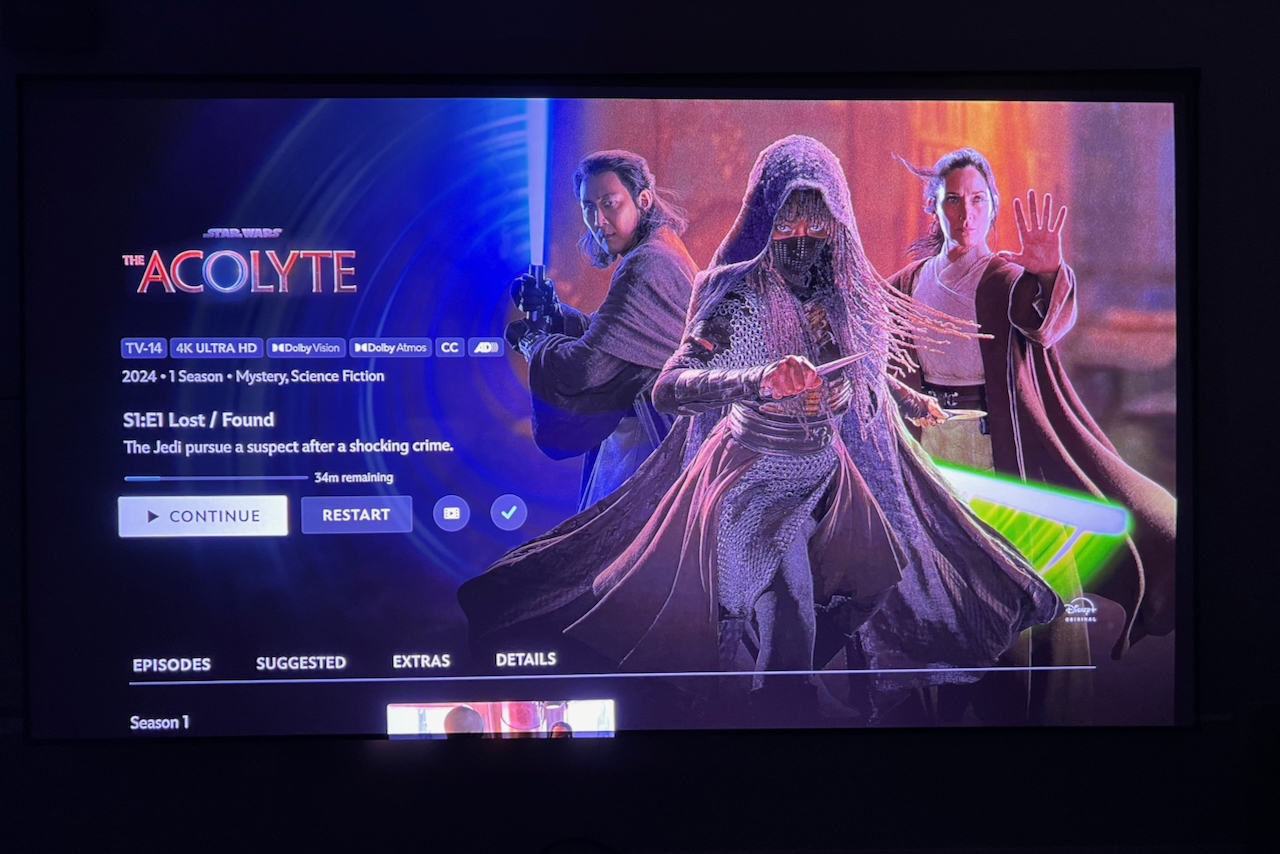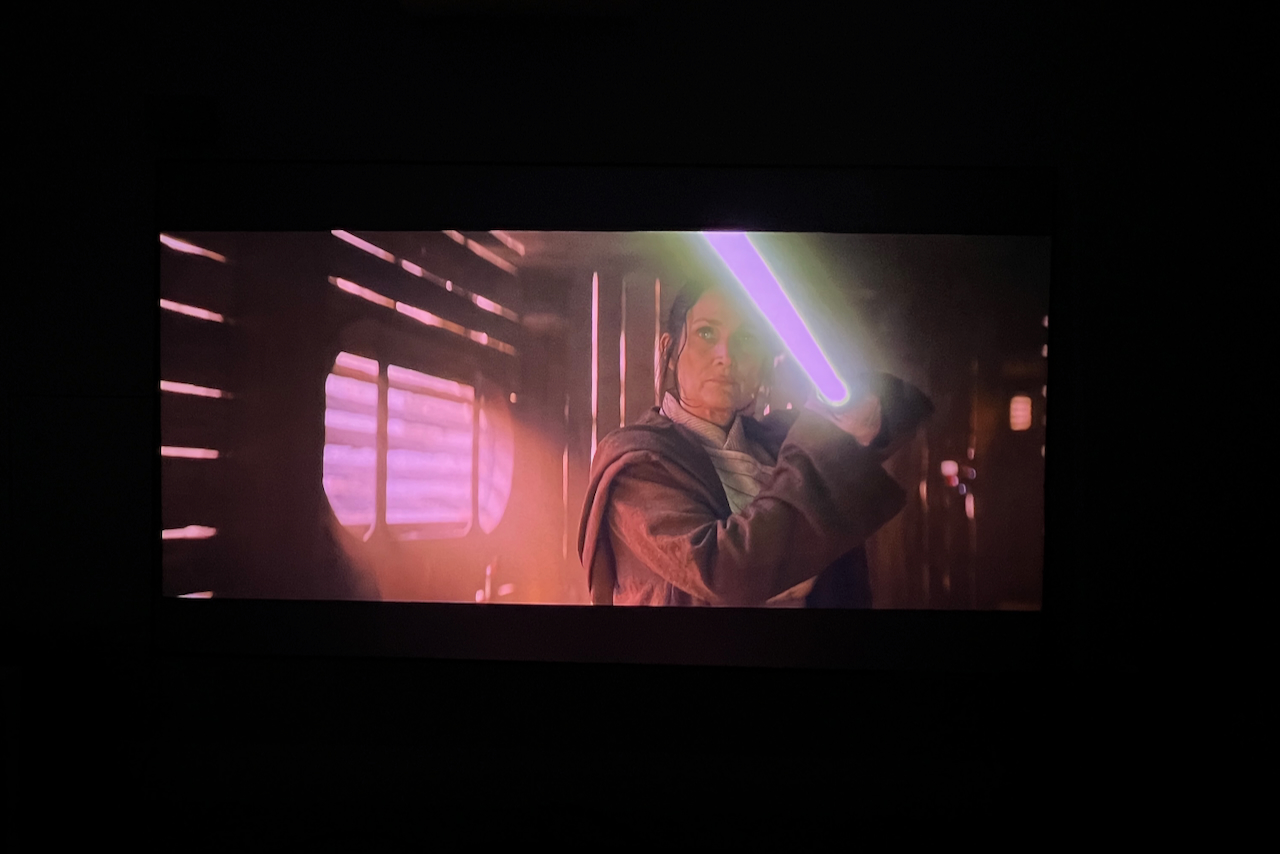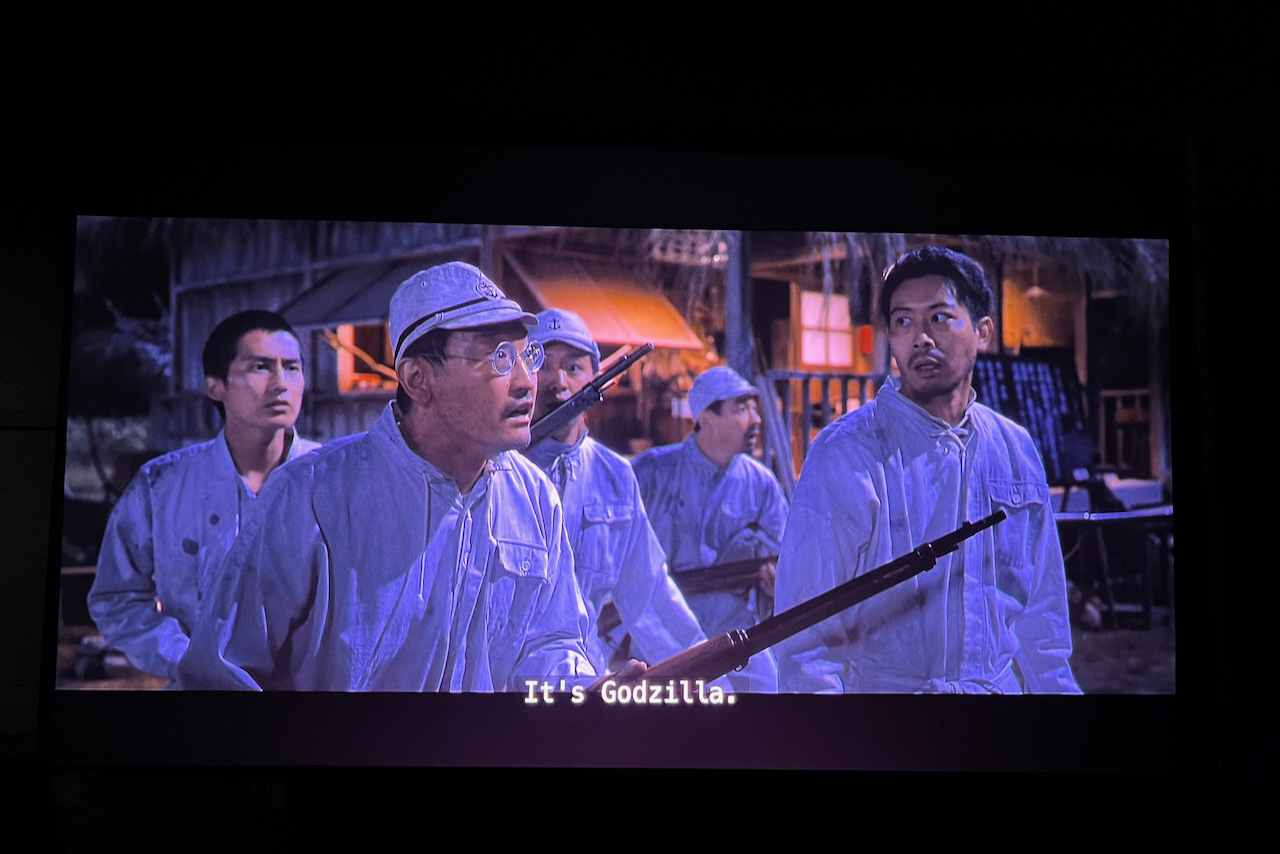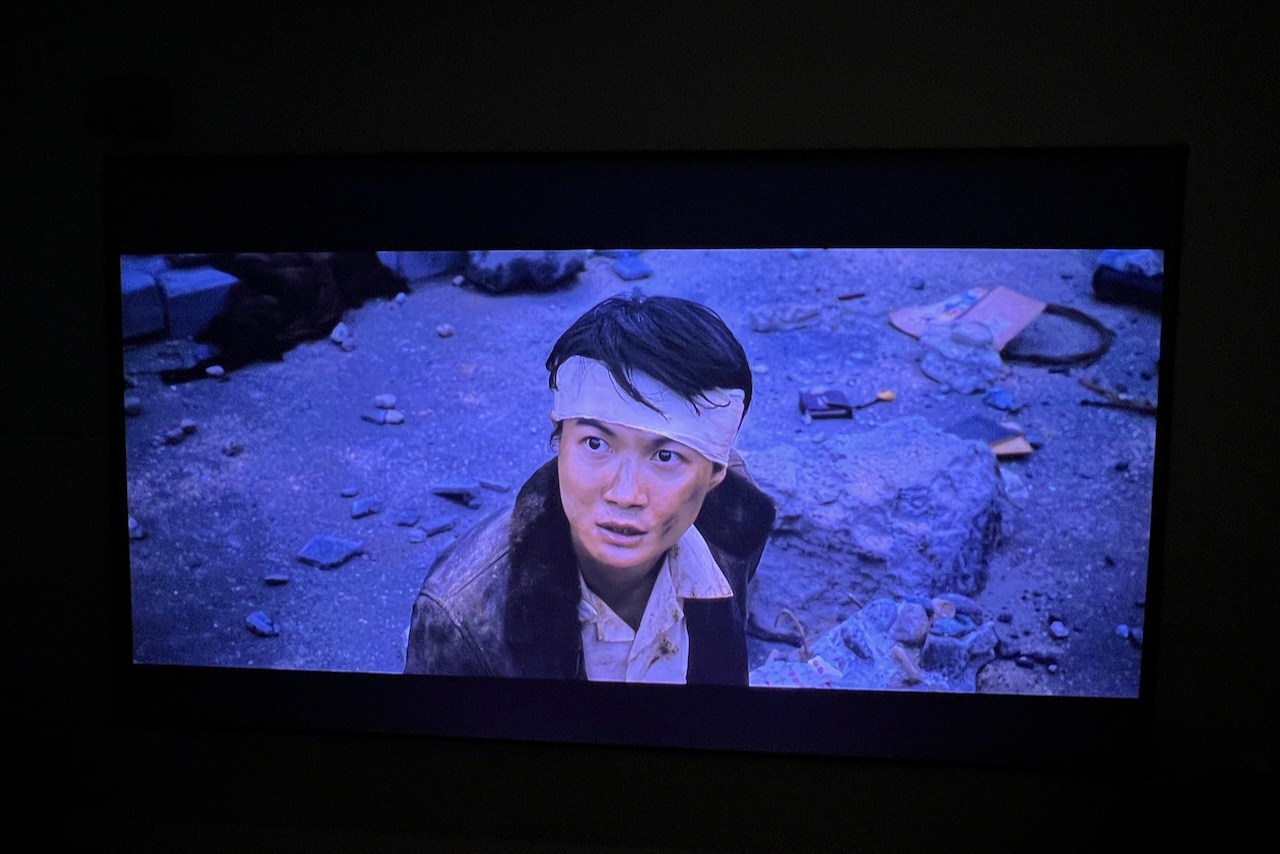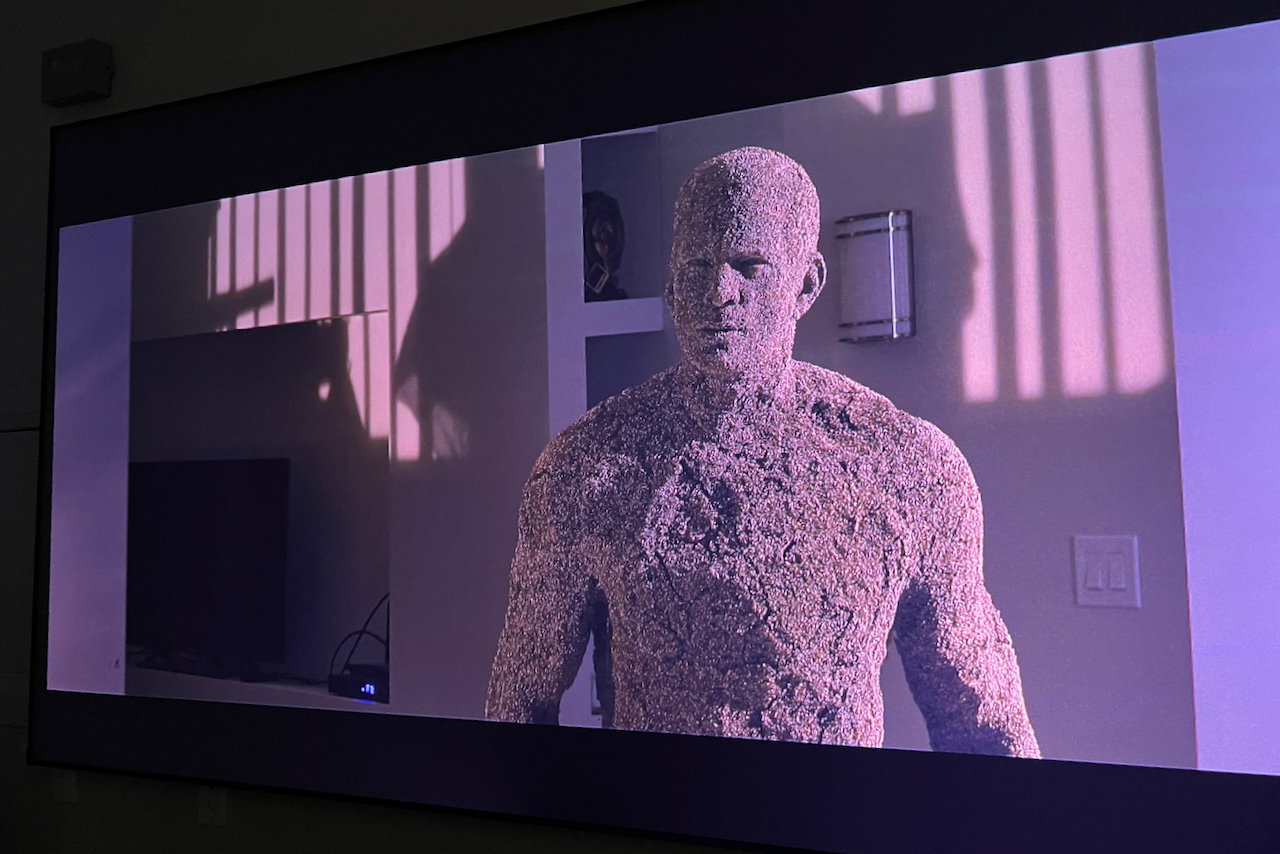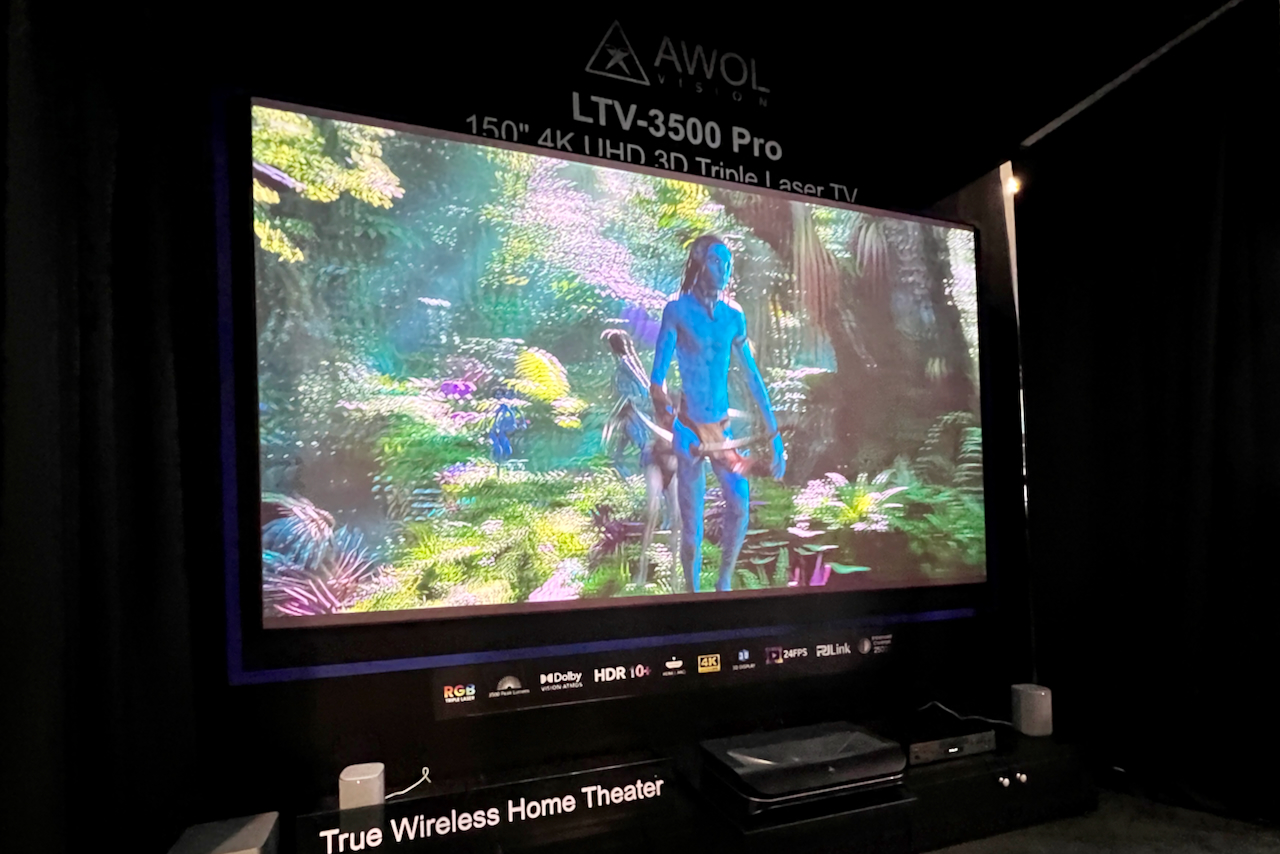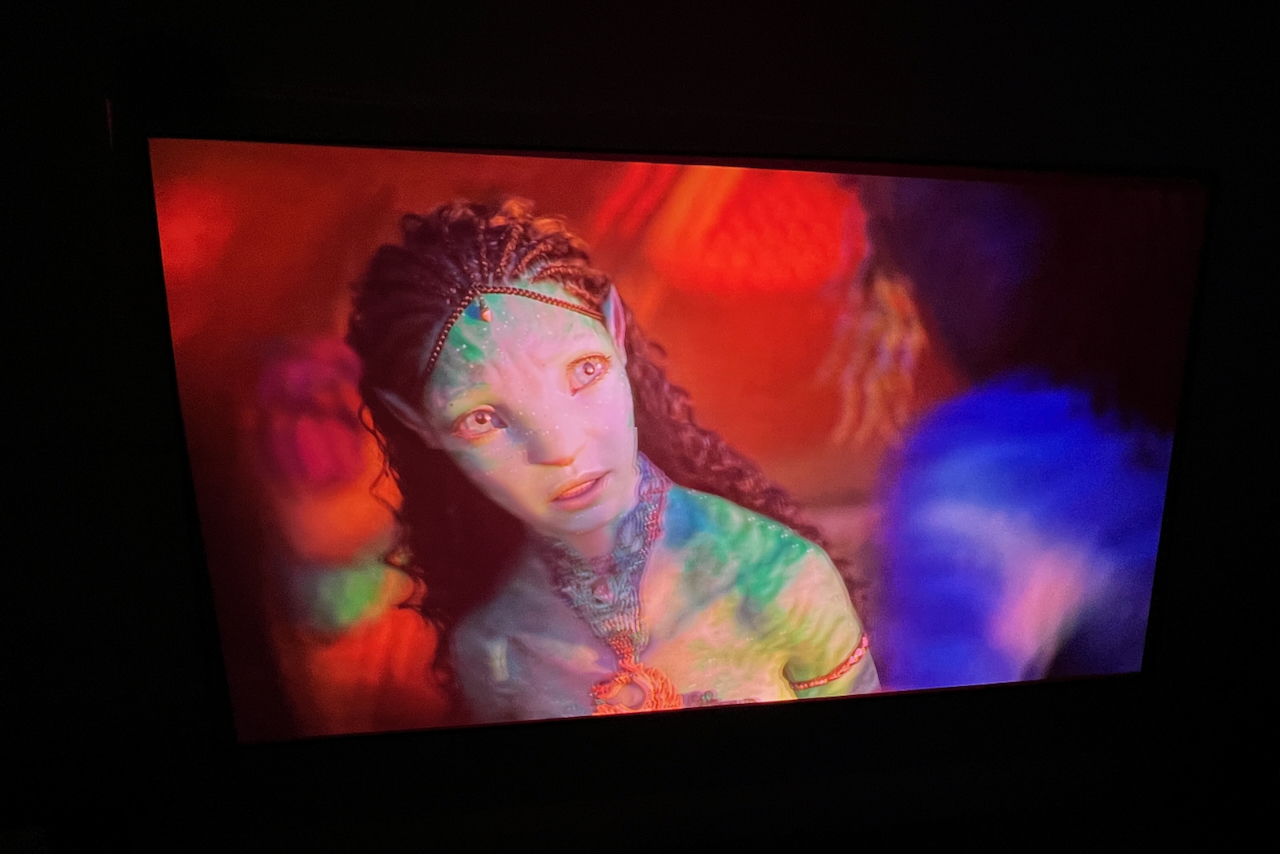“The AWOL LTV-3500 Pro's steep price is outshined by its stunning picture performance and the kind of brightness I've never seen in a projector before.”
- Phenomenal brightness
- Great in bright rooms
- Vivid, accurate color
- Fire TV 4K included
- Solid built-in speakers
- Expensive
- Manual setup
Getting the right projector can make or break your home theater room. On the one hand, if you’ve got the ideal ingredients a home theater needs to thrive — like a dark, windowless room, a big and clean wall (or better yet, an ALR screen), a good sound system, and ample throw distance — your chances of achieving cinephile bliss improve exponentially. On the other hand, if you don’t have all these things, then the field narrows when it comes to finding the perfect projector.
The AWOL LTV-3500 Pro aims to fly in the face of these challenges, as it’s one of the brightest and best-performing projectors we’ve ever tested. But it’ll cost you.
The LTV-3500 Pro is the relatively new California-based company’s flagship UST (ultra short throw) triple laser projector. It’s a 4K, 3D-capable workhorse that supports both Dolby Vision HDR and Dolby Atmos sound. That’s all well and good, yes, but the main ingredients that help the LTV-3500 Pro earn its eye-watering $6,000 price are what make it so good. First, its blistering 3,500 lumens of brightness doesn’t care about your windows or your lights. You can put it wherever you like and the picture will be clear, full of contrast, and vivid. Second, the LTV-3500 Pro can throw an image from 100 to 150- inches in size and can do it sitting just inches from your wall. It also comes with some solid speakers built-in, so all but the best soundbars need not apply.
The LTV-3500 Pro does do a lot of other things quite well, too, but does it all justify the six grand it’ll cost you? Let’s find out.
Setup and design

My experience with setting up UST projectors has been good overall — they don’t usually come with a lot of extra parts to assemble or attach. Aside from positioning and getting the image aligned, it’s a straightforward process. The AWOL LTV-3500 Pro is in line with that experience.
UST projectors are, however, usually rather large. The LTV-3500 Pro measures 23.6 by 13.9 by 5.7 inches and weighs almost 24 pounds, but one of the great things about UST projectors is that you don’t have to ceiling mount them. They can sit on your media unit or floor, right under the screen or wall, and once they’re placed and adjusted, they don’t move.
I set up the LTV-3500 Pro with a 100-inch ALR screen and, based on the recommendations from AWOL, I positioned it just a mere 10 inches from the screen (that’s from the back, or wall-facing side of the projector). If you were going to go for the full 150-inch experience, that distance jumps to 20 inches, and that gets a bit more challenging if you have to move your media unit out to achieve it.
Setup is simple, and the instructions are well laid out. There are grid and border guides to help you move the image into place, and there’s eight-point manual keystone correction and manual focus features to dial in the picture angles and crispness. If you’ve ever manually set up a projector before, it’ll go quickly. My only gripe with the LTV-3500 Pro, given its price, is its lack of automatic fitting or keystone adjustment features. But I suspect AWOL has omitted these features because, for a projector this high-end, you’re likely going to set it up permanently on a properly mounted screen or suitable wall, making auto keystoning less relevant.
Once the LTV-3500 Pro is good to go, you can take a step back and admire how dead sexy the thing looks. Its matte gray finish is accentuated by some slick-looking silver keylines that curve and run along its piano-black front side, making it look like the front end of a sleek sportscar, minus the headlights.

Ah, but there is a headlight of sorts — the projector’s triple laser-driven Ricoh glass lens, which is recessed in the top of the projector, surrounded by a cool rippled texture. The sides are covered in futuristic-looking, triangle-shaped air vents.
Lastly, the LTV-3500 Pro comes with a shimmering metallic remote that is delightfully feature-rich, with direct access to input source selection, picture and sound settings, a brightness shortcut, and more. The only thing I wish it had was backlit buttons.
Inputs and connectivity

On the back of the LTV-3500 Pro are more than enough inputs for connecting a wide range of sources, from Blu-ray players to streaming devices and more. They include an optical S/PDIF audio input, micro-USB for servicing, USB-A, LAN, two HDMI ports (one eARC), and an additional HDMI input behind a removable panel that can be used to connect and hide the included Fire TV Stick 4K Max. This HDMI input also has its own USB port for powering the streaming stick, which you can also use with another device if you like. I like this feature (BenQ’s V5000i and HT 4550i projectors also have this panel for hiding the dongle) as it helps keep your setup free from clutter.
The AWOL LTV-3500 Pro itself runs an Android 9.0-based operating system, but unlike the Android TV or Google TV interfaces a ton of projectors are opting for nowadays, it’s just an interface and does not offer any built-in apps or streaming services (that’s what the Fire TV Stick is for). And, frankly, I prefer this as it allows the AWOL to operate in a way that’s much snappier than my experience has been with the Android TV- or Google TV-based projectors I’ve used. I opted to connect my Apple TV 4K for the review, though, and it worked perfectly.
The LTV-3500 Pro also features dual-band Wi-Fi connectivity and wireless screen mirroring for sending video from your smartphone. And there’s a Bluetooth speaker mode for sending audio to a wireless speaker, should you choose.

The Android user interface is well-designed, logical, and everything is within a few menu levels. And, as we’ll get into more later, the picture settings available are robust enough for precise tuning, but they’re not at all overwhelming like a lot of projectors can get.
The LTV-3500 Pro also comes with Control4 Smart Home compatibility built-in, which allows control of several of the projector’s features such as power, input switching, and volume with Alexa and Google Assistant. Control4 is also a custom home automation service, in case you want to integrate the projector into a wider smart home setup.
Picture and sound features

For your hard-earned $6,000, you’re getting some of the best picture specs we’ve ever seen with the LTV-3500 Pro, thanks in large part to its maximum brightness of 3,500 lumens. That’s 700 more than the equally priced and top-rated Samsung The Premiere LSP9T and 1,000 more than the BenQ V5000i that are both on our best UST projectors list.
That brightness is delivered by an RGB triple laser DLP optical system that throws a 4K (3,840 by 2,160) resolution picture that covers 107% of the Rec. 2020 color space. As we mentioned up top, the LTV-3500 Pro is an excellent performer in both bright and dark rooms (more on this later), with some impressive black levels that can be attributed largely to its 2,500:1 contrast ratio. It also boasts wide HDR support, including HDR10, HDR10+, HLG, and Dolby Vision, making it one of the only projectors on the market to support all four.
While there are better projectors around for gamers, they’ll generally be impressed with the LTV-3500’s gaming capabilities. While the LTV-3500 Pro is capable of a respectable 60Hz refresh rate and 15ms lag time at 4K, gamers will be more apt to use the projector’s Turbo Game mode that drops the resolution to 1080p. The benefit of doing so is a 120Hz refresh rate and 8ms lag time, which will be better for faster games like first-person shooters online or racing games.
The LTV-3500 Pro is also a 3D-capable projector, and some AWOL retailers are offering the projector with two pairs of 3D Active Shutter glasses with the purchase (an $80 value).

For sound, we’ve been seeing a marked improvement in many projectors’ built-in audio, and we’re happy to report that the LTV-3500 Pro has not only also taken up this mantle, but they’re excellent. It features two internal stereo speakers with a total output of 36-watts. There’s support for both Dolby Atmos and DTS:X, and the sound is surprisingly big, full, and immersive, with the virtual surround doing a decent job at placing movie sounds like speeding cars and explosions around the room. We’re accustomed to beating the get-a-soundbar drum with TVs and projectors, but we’d urge you to give this system a try before committing — it might just do the trick in a reasonably sized room.
Performance

The AWOL LTV-3500 Pro is the brightest UST projector I’ve tested, and its performance with lights on and/or daylight streaming in is the best I’ve ever seen, making it as close to a TV replacement contender that I’ve come across — if you can stomach the price.
During my testing, I used the included Fire TV Stick 4K Max, but mostly an Apple TV 4K, and watched a variety of movies and TV shows on a 100-inch ALR (ambient light rejecting) screen, as well as on a blank white wall. I don’t have a large TV room, so UST projectors are a great solution for saving space. I placed the projector on the floor in front of the screen, making setup easy as it didn’t have to compete with anything else on a media console.
My TV room is also in my basement and has a sizeable window that lets in a fair amount of light. But the LTV-3500 Pro’s 3,500 lumens barely wavered. Blinds up, blinds down, room lights on full, room lights off – the picture output was outstanding, with only minimal gray-washing on the black levels in full light situations, but still better than any projector I’ve reviewed.
Even with out-of-the-box picture settings, the brightness and contrast in Dolby Vision shows like Disney+’s The Acolyte, with its saturated and fast-moving light sabers, looked crisp and vivid. Darker scenes were nice and inky, but not too dark. By default, the Dynamic Contrast and Enhanced Black Levels features are set to On and toggling them on and off revealed that this is the right call — both add a nice brightness boost and deepen the black levels.
The default color temperature setting, with Dolby Vision, is set to Auto, and the projector’s Wide Color Gamut is set to On as well (this is also the case with other HDR formats). Again, these settings were spot-on as color accuracy and saturation on the LTV-3500 Pro is great across the board. When watching Spider-Man: No Way Home, the gold and reds of Peter’s Spidey suit popped, and Sandman’s textured sand-skin was beautifully gritty and contrasty.
Some of the projector’s picture settings can have an adverse effect on the colors if you fiddle around too much, though, making them too punchy or overly saturated. Turning the Wide Color Gamut off added a bit too much blue and green to the picture, and I especially noticed this when watching Godzilla Minus One on Netflix, where many of the daylight scenes were a washed in a blue hue.
I wanted to compare the color accuracy with my LG OLED TV, so I loaded up Dune: Part Two on both screens and, for the most part, the sepia-tinged deserts of Arrakis were well-matched. And even if they weren’t, the LTV-3500 Pro provides all the picture adjustment features you could ever want, and they’re not buried in layers and layers of menus, which makes it easy to experiment and tweak.
Of course, even with the LTV-3500 Pro’s prowess in the light, it goes without saying that the best viewing experience is still in the dark. The darker the better. Do that, ideally on an ALR screen (my wall tests were OK, but nowhere near as good as the screen), and you might be more forgiving of the price.
And while I didn’t perform a thorough test of the LTV-3500 Pro’s 3D features, I did view several 3D movie demos on YouTube, including a few high-quality Avatar: The Way of Water trailers (I also saw these demos shown on-screen at AWOL’s CES 2024 booth). I was easily able to switch the 3D settings to the appropriate side-by-side format, and once my eyes adjusted, the image through the active glasses AWOL provided was clear and stunning, with trees and flying Pandora creatures seemingly shooting out at me. The images above, obviously, don’t do it justice.
Oh, and lest we forget the sound performance of the LTV-3500 Pro. I had forgotten I wasn’t using my TV room’s Sonos soundbar and Sub setup for a while there — until I was fiddling around in my Apple TV’s sound settings. Was there a difference? Of course –- the Sonos Sub has some amazing low end. But, the built-in 36-watt speakers in the projector were impactful and room-filling enough that I didn’t question the sound.
Dialogue suffers a bit and the soundstage could be wider and deeper, but there’s enough power and volume to suffice if you don’t have a soundbar or proper home theater AV receiver. But let’s be real — if you’re prepared to drop six grand on a projector that can bring a compelling theater experience to your home, you should add sound to match.
Final thoughts
Your first reaction to the AWOL LTV-3500 Pro might be to double-take on its $6,000 price, which makes it one of the most expensive projectors we’ve ever reviewed. You also have to consider that you’re likely going to want to snag an ALR screen with it, which AWOL sells for around $1,400. However, to linger on the price point for a moment longer, the LTV-3500 Pro can usually be found on sale for $500 cheaper, and you can bundle a screen with it, too (check out AWOL’s cool motorized floor-rising screen if you want to go totally crazy).
And, if the price is still too steep, consider a slight step down to the LTV-3000 Pro, which is almost identical spec-wise (it’s 3,000 lumens) and costs $4,000, or the LTV-2500, whichhas 2,500 lumens and goes for $3,000.
This all may or may not soften the blow, but what will is the fact that the LTV-3500 Pro is the best-performing projector in both bright and dark rooms that we’ve ever seen. It has outstanding picture clarity, color and contrast, solid built-in sound, and can throw a huge image without hogging all the space in your living room. If you’re looking to replace your TV for a bigger, theater-like experience, this will do it, and for much cheaper if you consider that TCL’s new 115-inch QM89 mini-LED is $27,000.
Setup might be a little more finicky than it is with those projectors with automation features, but once it’s dialed in, the LTV-3500 Pro makes for an excellent dedicated home theater. More serious home cinema folks will love the detailed options for picture adjustment, while the less seasoned will love how easy they are to actually adjust. These features, combined with its top-tier brightness and wide support for HDR formats, ensure that the LTV-3500 Pro will also last a while, too, making that big price look more like an investment.


